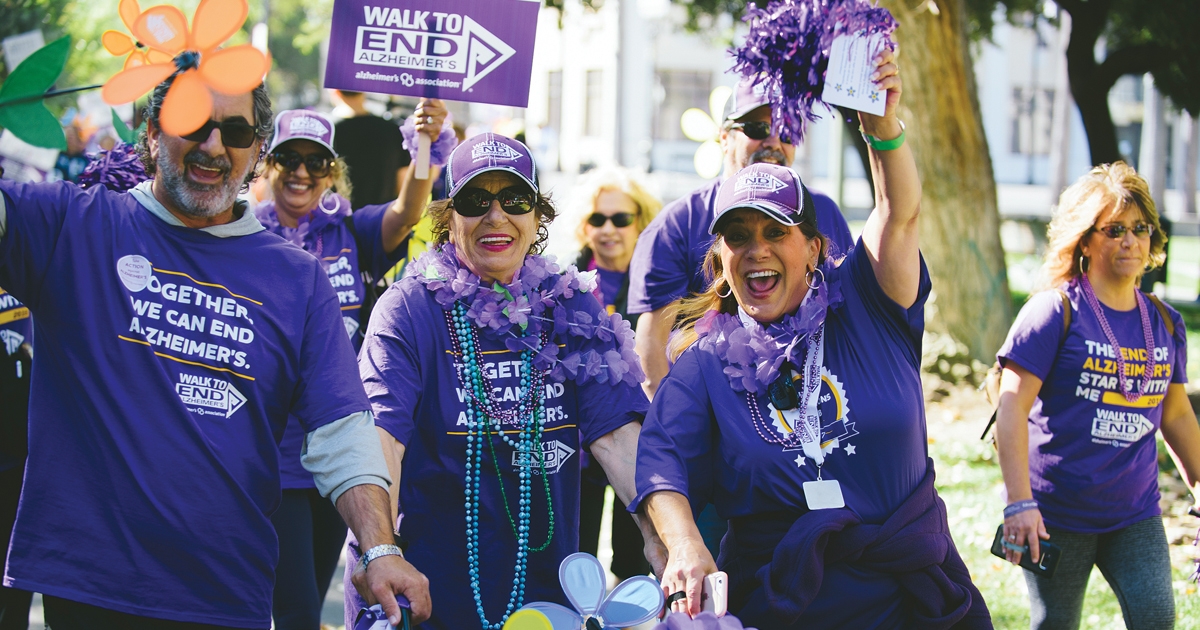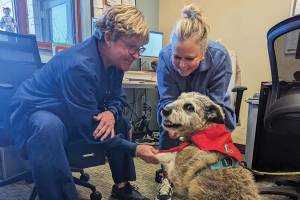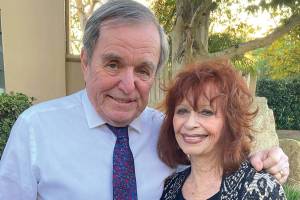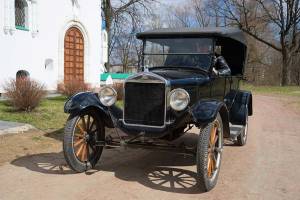By LYNN MULLOWNEY CABRERA
Alzheimer’s manifests itself differently in every person, developing slowly or rapidly, interfering differently with each individuals’ abilities, their cognition, their memories, their functioning.
For all that it takes, this disease also gives us important opportunities to rise to be our best selves. I think often of my friend, Barb (named changed for privacy). Within a few months of retiring after years as an elementary teacher, Barb was diagnosed with mild cognitive impairment. Two years later, it had advanced to early—or young—onset Alzheimer’s.
Soon after, she and her husband, Bill, became Alzheimer’s activists, raising their voices for legislation to help families and caregivers. They became involved in Alzheimer’s research. Her family and friends formed a Walk to End Alzheimer’s team, and they attended classes and events offered by the Alzheimer’s Association.
What a gift it was to have met Barb when she was still early in the disease process. She was able to explain to me what the experience was like, speaking about it without a tinge of self-pity—more a sense of wonder. Without even trying, Barb taught all of us who have been blessed to know her about the vital importance of maintaining a sense of humor and finding the simple joy.
At an Alzheimer’s Association donor event, Barb and her husband shared their story. He discussed pragmatically how they accommodated her growing limitations. How he now did much of the work around the house—the cooking, the shopping, the bill paying.
Barb interrupted him and brightly interjected, “Yes, but he has found a way for me to still help with laundry.” Of course, laughter followed. No self-pity in these dear people, just a lifelong courtship and this detour they never expected.
Barb had incredible and effortless comedic timing. She really wasn’t ever trying to be funny, but she was, and it was her laughter that made it okay for all around her to find joy in the moment.
At a Walk to End Alzheimer’s, Barb was surrounded by dozens of family and friends, all wearing purple t-shirts and ball caps—everything emblazoned with their team name, We Love Barb.
To get away from the noise a bit, Barb and I walked along a path, and, as we did, she mused that all these people seemed to know her and remember her name, but she just really was struggling to know them.
She was touched that they were wearing name tags to assist her with identifying everyone, but she said, “I can’t really read anymore.”
Her voice trailed off and broke just a little when she said, “I didn’t know it was going to be like this…did you?”
Then she smiled and said, “But I don’t hurt anywhere.” “She continued, “Well, that’s not really true. My bra is hurting me. Bill made me wear a bra today because people would be around.”
We laughed and held hands as we returned to the crowd of people there to honor and celebrate that dear lady. Barb was teaching me still, showing me the lighter side of even the most difficult times.
Barb and Bill have taught me so much about adjusting. About taking what comes, making no complaints and just adjusting.
At lunch with Barb and Bill a couple months ago, it was difficult to see how much the disease had taken from her. The progression can be more apparent, too, when you don’t see a loved one often.
Barb now is largely nonverbal. She can no longer feed herself or raise the glass to her mouth. When she drinks from a straw, she struggles to position it in her mouth. She can’t navigate stairs, curbs, even something as small as a door sill can trip her.
Bill offered constant and steady guidance—keeping up the conversation, always including Barb—never talking about her or around her as though she wasn’t there with us.
Bill chose the table and chairs, declining the booth. Quietly he explained it is harder to help her in and out of her chair in the booth. The table, too, made it easier for him to help her with her meal.
She sat silently with her hands in lap, her gaze distant and unfocused. Periodically, he invited her to have a bite and prepared one for her—assisting in wiping her mouth with the napkin. Barb spokes not a word.
Selfishly, I wanted to connect with her. So I placed my hand on the table, palm up in front of her, and she placed her hand in mine. And there it stayed for the next 30 minutes as we finished our meal and our conversation.
It wasn’t much…but it was something. And I can feel it still.
Bill began to move away from the table, and said, “Well, Barb, should we head home?” Without pause and with absolute clarity, she said—“Let’s stay. I like it here.” Her hand in mine, Barb smiled.
The heart remembers, of this I am confident. It has a grasp that won’t let go. Barb and Bill have taught me this truth. They are teaching me and all who know them, these everyday lessons in respect, courtesy, love, and cherishing every joy-filled moment. MSN
The Alzheimer’s Association offers education, and, through a no-cost 24/7 Helpline, they provide care coordination, counseling, and resources. In addition, contributions help fund advancements in research to prevent, treat, and eventually conquer this disease. The Alzheimer’s Association advocates for those living with Alzheimer’s and their families on related legislative issues and with health and long-term care providers. For information call the Alzheimer’s Association 24/7 Helpline at 800-272-3900 or visit alz.org.










